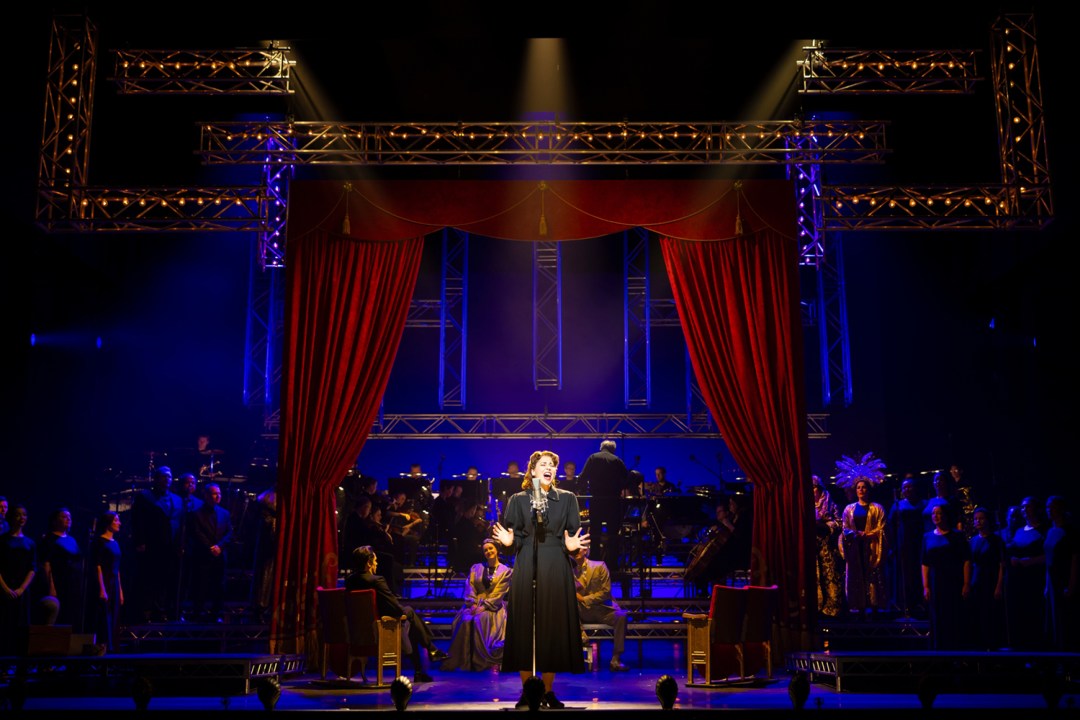
Once upon a time on Broadway, Igor Stravinsky composed a ballet for Billy Rose’s revue Seven Lively Arts. After the first night, Rose felt that Stravinsky’s efforts might benefit from the attention of Robert Russell Bennett – the king of Broadway orchestrators, who’d collaborated with Cole Porter and the Gershwins. ‘YOUR MUSIC GREAT SUCCESS,’ he telegrammed to Stravinsky. ‘COULD BE SENSATIONAL SUCCESS IF YOU WOULD AUTHORISE ROBERT RUSSELL BENNETT RETOUCH ORCHESTRATION.’ Stravinsky wired straight back: ‘SATISFIED WITH GREAT SUCCESS.’
If you’re mad enough to revive Love Life, you have to commit. Opera North did
There were moments in this revival of the Lerner and Weill flop Love Life when I wondered whether Weill, too, might have profited from a Bennett makeover. Sacrilege! Kurt Weill was one of the very few Broadway composers (then or now) who insisted upon complete control of his own orchestral sound. And it’s true that Love Life is a gorgeous score, soaked in bittersweet melody and bruised romanticism. But you long for a little more sparkle, a touch more sonic pizzazz; anything, really, to buck the show’s long downward trajectory. Come on, boys, give us a smile!
It probably wouldn’t have made much difference, mind. Love Life is a musical about family life scripted by Alan Jay Lerner, who divorced seven times and whose best shows (My Fair Lady, Camelot, Gigi) contain not a single healthy, recognisable marriage. It’s an anti-capitalist critique of the American dream, an epic downer scored by Bertolt Brecht’s old co-writer at the precise moment – 1948 – of peak postwar optimism. Oh, and it’s framed as a flashback, narrated by a magician, and the hero and heroine can travel in time. Got that? Now prepare to be lectured. At one point Lerner trials an early draft of ‘Ah Yes, I Remember It Well’, and it dies on its feet.
In short, Love Life is a multi-car pile-up of terrible ideas – proof (as fans of the film Cats will know) that you can hurl talent at a show, but there’s no guarantee that it’s going to stick. Glorious music, though. It missed out on a cast recording during its original Broadway run; hence this three-night revival by Opera North. For what was essentially a recording project, they certainly went to town, with the orchestra on stage, James Holmes conducting and the director Matthew Eberhardt rustling up rather more than just a semi-staging. So there was a conjuror (Themba Mvula), vocal strength in depth from the Opera North company in Weill’s various pastiche ensembles (everything from a mock-madrigal to a barbershop quartet), and three all-dancing, all-singing little girls in pinafores and bows, who duly brought the house down. Justin Hopkins sang with open-hearted nobility in his solitary number as a sort of mystical hobo and for one brief, shining moment, Lerner and Weill sounded almost like they belonged together.
Quirijn de Lang and Stephanie Corley played Sam and Susan, the couple whose marriage – in the show’s baffling central conceit – gradually disintegrates over 150 years of American history. They could hardly have mustered more conviction, even if (and we have Lerner and Weill and to thank for this) their quarrels felt more real than their early aw-shucks optimism. De Lang’s voice opened out thrillingly in his post-divorce anthem ‘This is the Life’, and Corley really brought it – and then some – in a big bluesy production number about women’s suffrage, singing with exuberant, gravelly flair.
If you’re mad enough to revive Love Life, you have to commit. Opera North did, and Weill’s entire score is now safely captured on record, which is probably the best place for it.
The Royal Opera has revived Claus Guth’s 2021 production of Jenufa, which excited me hugely first time around. Possibly the post-Covid euphoria had gone to my head. Guth’s production, with its stark monochrome designs and bolted-on symbolism (the regimented toing and froing of the chorus, a dark figure with a crow’s head) is a perfectly serviceable example of modern European opera direction. It’s inoffensive, mostly, but I wish Guth allowed the performers to make more eye contact, rather than parking them moodily about the stage. It’s the sort of staging that looks better in publicity photos than in action.
But you should see it: firstly, for Corinne Winters’s presence and pure, controlled singing as Jenufa. Her intensity draws the whole performance in around her. Secondly, for Nicky Spence’s ardent, touching Laca and Karita Mattila’s Kostelnicka – both reprised from this production’s first outing. I can’t recall whether Mattila chewed the scenery quite so frenetically in 2021, but after some early wobbles the inner warmth and expressive range of her singing was still remarkable. And finally for the shot-silk colours of Jakub Hrusa’s astonishingly lyrical and tender conducting, which will come as a revelation to anyone who still thinks Janacek is all about jagged edges. For Hrusa, clearly, it’s all about love.








Comments